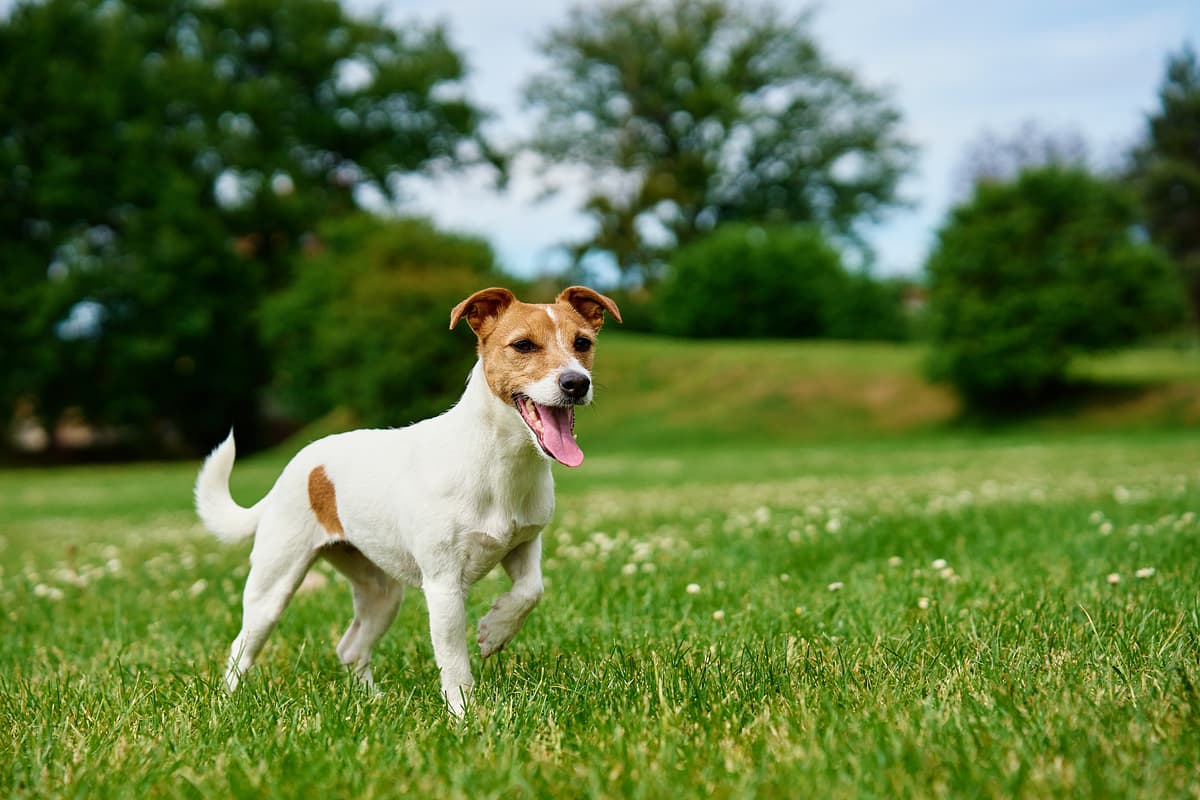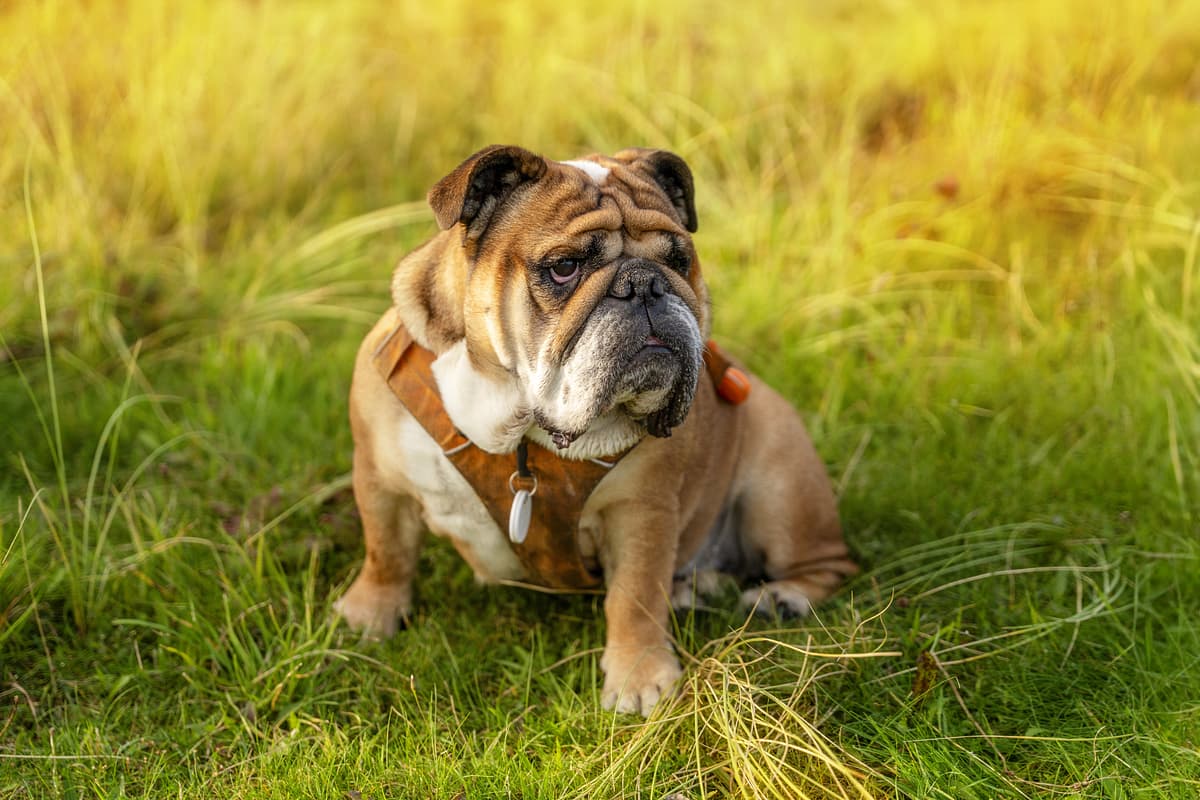Jack Russell Terrier vs English Bulldog
Discover the differences between Jack Russell Terrier and English Bulldog to make the best choice for your situation.
Try different breeds

Jack Russell Terrier
Packed with energy and cleverness, this small terrier thrives on adventure and play. Loyal and lively, it brings endless enthusiasm to an active household.

English Bulldog
Stocky, courageous, and affectionate, this breed charms with its wrinkled face and calm nature. Loyal and gentle, it thrives as a loving family companion.
Quick comparison
Small
6–8 kg
Short, dense
13–16 years
5–7 kg
High energy
Medium
23–25 kg
Short, smooth
8–10 years
18–23 kg
Low activity needs
Personality & behavior
Compare the personality traits and behavioral characteristics of both breeds.
Jack Russell Terrier
Generally sociable, enjoys people and other dogs
Learns quickly and solves problems fast
Highly energetic, needs plenty of exercise
Loves games, very enthusiastic about play
Adjusts with effort, prefers familiar environments
English Bulldog
Affectionate and gentle with family and children
Learns basic commands with some patience
Prefers lounging over vigorous physical activity
Enjoys play but tires fairly quickly
Adjusts well to most living environments
Care needs
Exercise, grooming, and daily care requirements
Jack Russell Terrier
Patellar luxation, lens luxation
English Bulldog
Brachycephalic syndrome, skin fold infections
Suitability
How well each breed fits different living situations and families
Jack Russell Terrier
Challenging for novices
High energy and training needs can be tough for beginners
Not ideal
Needs space and frequent exercise, which small apartments rarely provide
Perfect fit
Thrives with active owners who provide regular exercise and stimulation
Needs supervision
Can be energetic and nippy, requiring close supervision with small children
Cautiously suitable
May have prey drive and require careful introductions to other pets
Prone to anxiety
Does not tolerate long periods alone and may develop behavioral issues
English Bulldog
Good option
Easygoing, low-maintenance nature suits owners with limited dog experience
Excellent fit
Moderate exercise needs and calm demeanor work well in small living spaces
Not ideal
Low stamina and breathing issues make them unsuited for high-activity lifestyles
Very suitable
Gentle, patient, and tolerant with young children when properly socialized
Usually compatible
Generally sociable but may need guidance with other pets, especially dogs
Not recommended
They struggle with long periods alone and are prone to separation anxiety
Breed strengths
What each breed excels at and their best qualities
Jack Russell Terrier
- Energetic and enthusiastic playmate
- Highly intelligent and quick learner
- Excellent agility and athletic ability
- Loyal and affectionate with family
- Strong hunting and tracking instincts
English Bulldog
- Affectionate with family members
- Generally good with children
- Low exercise requirements
- Minimal grooming needs
- Adaptable to apartment living
Challenges & considerations
Potential challenges and considerations for each breed
Jack Russell Terrier
- Prone to excessive barking when bored
- High prey drive towards small animals
- Needs extensive daily physical exercise
- Can be stubborn during training sessions
- May dig or escape if unsupervised
English Bulldog
- Prone to respiratory problems
- High risk of overheating
- Susceptible to skin infections
- Can be stubborn during training
- Tends to drool frequently
Ready to choose your perfect breed?
Learn more about each breed or compare other breeds to find the perfect match for your lifestyle.
Discover more helpful tools
Make use of our other free tools to get the most out of your pet experience
